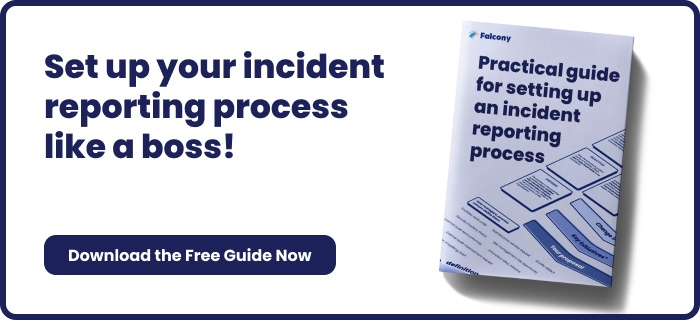Why Service Workers Need Mobile Tools?
The modern service industry is undergoing a rapid transformation.
With the growing demand for real-time information, improved responsiveness, and seamless communication, mobile tools are no longer a luxury—they are a necessity. For service workers across sectors such as maintenance, healthcare, hospitality, facilities management, and field services, mobile solutions are playing a pivotal role in reshaping how work is planned, executed, and reported.
Adapting to Dynamic Work Environment
Service work is inherently mobile. Whether attending a site inspection, servicing equipment, or delivering care in the community, service professionals rarely operate from behind a desk. Traditional systems and paper-based methods can no longer keep pace with the demands of a dynamic and decentralised workforce.
Mobile tools enable workers to access essential information—job details, schedules, customer history, compliance checklists—on the go. This reduces delays, ensures tasks are completed accurately, and supports a higher level of service delivery.
Enhancing Productivity and Efficiency
Mobile applications empower service workers to update records, capture data, and report issues in real-time. This significantly reduces administrative burden and eliminates the lag associated with manual data entry. With less time spent on paperwork, workers can focus on delivering value at the point of service.
Furthermore, integrated features such as GPS tracking, route optimisation, and digital signatures help streamline operations and improve efficiency. These tools not only reduce operational costs but also enhance the end-user experience.
Ensuring Compliance and Safety
In sectors where compliance and health and safety are critical, mobile tools provide essential support. Workers can use digital forms and checklists to ensure regulatory standards are met, record incidents or near misses immediately, and flag potential risks for further investigation.
Real-time data capture ensures that organisations maintain accurate records, which can be invaluable for audits, investigations, or continuous improvement efforts.
Enabling Better Communication and Collaboration
Mobile tools enhance communication between field workers and back-office teams. Whether through instant messaging, task updates, or push notifications, they keep everyone aligned and informed. This reduces miscommunication, improves coordination, and allows for rapid response to any issues that arise during a job.
In industries where multiple teams are involved in complex service delivery, seamless communication can significantly improve project outcomes.
Supporting Workforce Involvement and Retention
Providing service workers with intuitive, easy-to-use mobile tools also contributes to job satisfaction. When workers feel empowered with the right technology, they are more engaged, more productive, and more likely to remain with the organisation.
Younger generations entering the workforce expect digital tools as standard. Meeting these expectations is vital to attracting and retaining talent in a competitive labour market.
Real-World Applications Across Sectors
Mobile tools are already transforming day-to-day service operations. Consider the following examples:
-
Facilities Management: A technician receives a maintenance request via a mobile app, uses GPS to navigate to the site, completes a digital checklist, and uploads photos of completed work—all before leaving the premises. The job is instantly logged and closed in the central system.
-
Healthcare: A home care nurse checks their mobile schedule en route, logs vital signs directly into the patient's digital record during the visit, and receives an urgent update from the care coordinator without needing to return to the office.
-
Utilities and Field Services: Engineers working on infrastructure repairs can access technical manuals, record risk assessments, and collaborate with remote experts through mobile video—all without disrupting work in progress.
-
Hospitality and Housekeeping: Hotel staff use mobile tools to report room status, request maintenance, and confirm cleaning tasks, helping to turn over rooms more efficiently and improve guest satisfaction.
These real-world examples highlight the flexibility and immediate impact of mobile tools across different service contexts, enhancing both the employee and customer experience.
Preparing for Digital Future
The future of work is digital, and service roles are no exception. Organisations that fail to adopt mobile solutions risk falling behind in both performance and employee involvement. Mobile tools are not just a response to current challenges—they are an investment in future resilience, flexibility, and growth.
As technology continues to evolve, the capabilities of mobile platforms will only increase, offering even greater potential to enhance service delivery, reduce risk, and improve operational efficiency.
Conclusion
The case for mobile tools in the service sector is clear. They offer tangible benefits across productivity, compliance, communication, and workforce involvement. As organisations look to future-proof their operations, embracing mobile technology will be key to staying agile, competitive, and responsive in a fast-changing world.
If you're looking for a platform to collect more data to monitor your organisation's incident reporting practices, Falcony | Observe have you covered. You can find more information on our website or test out our 30-day free trial:
We are building the world's first operational involvement platform. Our mission is to make the process of finding, sharing, fixing and learning from issues and observations as easy as thinking about them and as rewarding as being remembered for them.
By doing this, we are making work more meaningful for all parties involved.
More information at falcony.io.

Related posts
Ways To Get Senior Management Buy-in For An Incident Reporting Software
An incident reporting software enables the organisation to track all incidents during the normal...
8 Common Safety Risks in Government and Public Sector
Government and public sector organisations shoulder a critical responsibility to ensure the safety...
Mastering the Art of Tenant Retention
In commercial real estate, tenant retention is a top priority for property owners and managers....







